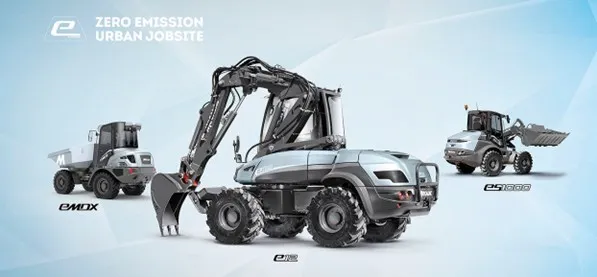French firm Bolloré has developed an innovative lithium metal polymer (LMP) battery. This is the result of a 15 year research and development process. Low levels of interest by OEMs in the new system encouraged Bolloré to launch its own electric vehicle featuring this battery. Called the Bluecar, the vehicle is now available in Paris through the autolib scheme. The aim of the project is to have 1,100 rental stations, 3,000 Bluecars and 6,600 charging stations in 47 areas in the great Paris area.
April 13, 2012
Read time: 2 mins
French firm 4887 Bollore has developed an innovative lithium metal polymer (LMP) battery. This is the result of a 15 year research and development process. Low levels of interest by OEMs in the new system encouraged Bolloré to launch its own electric vehicle featuring this battery. Called the Bluecar, the vehicle is now available in Paris through the autolib scheme. The aim of the project is to have 1,100 rental stations, 3,000 Bluecars and 6,600 charging stations in 47 areas in the great Paris area. In the first 100 days, 1,000 cars were introduced to the market, 11,000 customers have registered to the service, for a total of 60,000 rents.
Meanwhile new Japanese technology is promising journey distances of up to 351km on a single charge for electric vehicles. A second prototype developed at Keio University, called the SIM-WIL, can theoretically travel 351km on a single charge.
This calculation is based on the JC08 urban driving cycle for emission and fuel economy measurements of light-duty vehicles, introduced in Japan in 2011. It is an admittedly optimistic calculation that measures performance under ideal driving conditions, which are hardly achieved in real life. The JC08 calculates that a2454 Nissan Leaf can travel 200km on a single charge, although in reality it is closer to 130km. Given this calculation, the range of the SIM-WIL on a single charge is reality likely to be slightly below 300km which is still impressive for a full-electric car. Performance is brisk and the SIM-WIL accelerates from 0-100km/h in 5.4 seconds. Traction is delivered by four in-wheel motors, with the battery and inverter integrated in the car frame. The name SIM-WIL is the development of the earlier SIM-Lei, which in April 2011 achieved 333km using a 24.5 kWh battery. The SIM-WIL features a stronger battery with 35.1 kWh. 34 companies and organisations have been involved in the development of the SIM-WIL, including 4888 Asahi Kasei Corporation, 4889 Carmate, 3405 Bosch, 2333 Takata, 4890 Tohoku Electric Power, 4891 Toppan and Mitsuuroko. SIM-Drive is continuing the work on prototypes with the objective to start commercial production in 2014.
Meanwhile new Japanese technology is promising journey distances of up to 351km on a single charge for electric vehicles. A second prototype developed at Keio University, called the SIM-WIL, can theoretically travel 351km on a single charge.
This calculation is based on the JC08 urban driving cycle for emission and fuel economy measurements of light-duty vehicles, introduced in Japan in 2011. It is an admittedly optimistic calculation that measures performance under ideal driving conditions, which are hardly achieved in real life. The JC08 calculates that a






